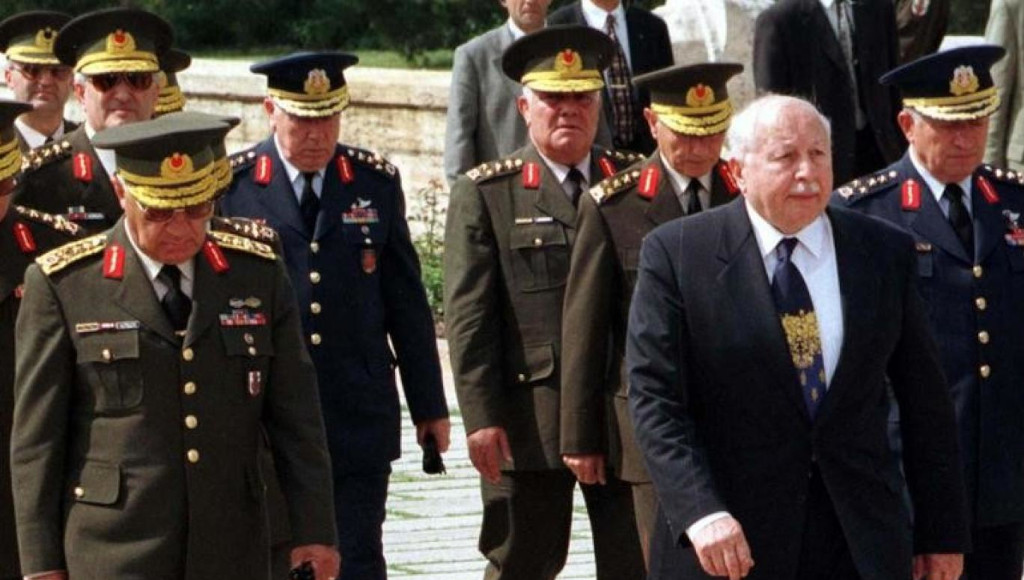Turkey has stripped of their rank 14 retired generals who were convicted on coup charges for their role in a military intervention in 1997, the state-run Anadolu news agency reported.
A court last month issued arrest warrants for the 14 retired generals after the Supreme Court of Appeals upheld their life sentences for their participation in the post-modern coup of February 28, 1997.
The Supreme Court of Appeals issued its decision on July 9, sending it to the local court on July 26.
The 14 defendants, who are all behind bars, are then-Deputy Chief of General Staff Çevik Bir, then-General Staff Operations Chief Çetin Doğan, then-Air Forces Commander Ahmet Çörekçi, then-Chief of General Staff Secretary-General Erol Özkasnak, former Gendarmerie Commander Fevzi Türkeri and former National Security Council (MGK) Secretary-General İlhan Kılıç as well as retired generals Aydan Erol, Cevat Temel Özkaynak, Çetin Saner, Hakkı Kılınç, İdris Koralp, Kenan Deniz, Vural Avar and Yıldırım Türker.
Thirteen of the retired generals were stripped of their rank by the General Staff, while a petition was sent to the Interior Ministry for the removal of the rank of Hakkı Kılınç, who was a general in the gendarmerie at the time, which is subordinated to the ministry.
The case tackles the infamous military intervention of Feb. 28, 1997, which did not result in direct military rule but forced the late Prime Minister Necmettin Erbakan to resign after the National Security Council (MGK) issued a memorandum claiming that there was rising religious fundamentalism in the country.
The bloodless “postmodern” coup is famous for having deposed the head of government after tanks paraded on the outskirts of Ankara and Erbakan was given an ultimatum.
Because the Islamist Erbakan-led government was forced out without the dissolution of parliament or the suspension of the constitution, the event was labeled a “postmodern coup” by members of the military involved in the process.
Erbakan resigned four months later, while his conservative Welfare Party (RP) and its successor, the Virtue Party (FP), were both banned by the Constitutional Court in January 1998 and June 2001, respectively. Erbakan, who died in 2011, pioneered Islamist politics in Turkey, a Muslim country with a secular state system, paving the way for the later success of current President Recep Tayyip Erdoğan’s Justice and Development Party (AKP). Erdoğan was also involved in politics under Erbakan’s party and was elected mayor of İstanbul in 1994.
Turkey saw violent coups in 1960 and 1980, but under Erdoğan, who survived an abortive putsch in 2016, the political strength of the military has been drastically rolled back.
